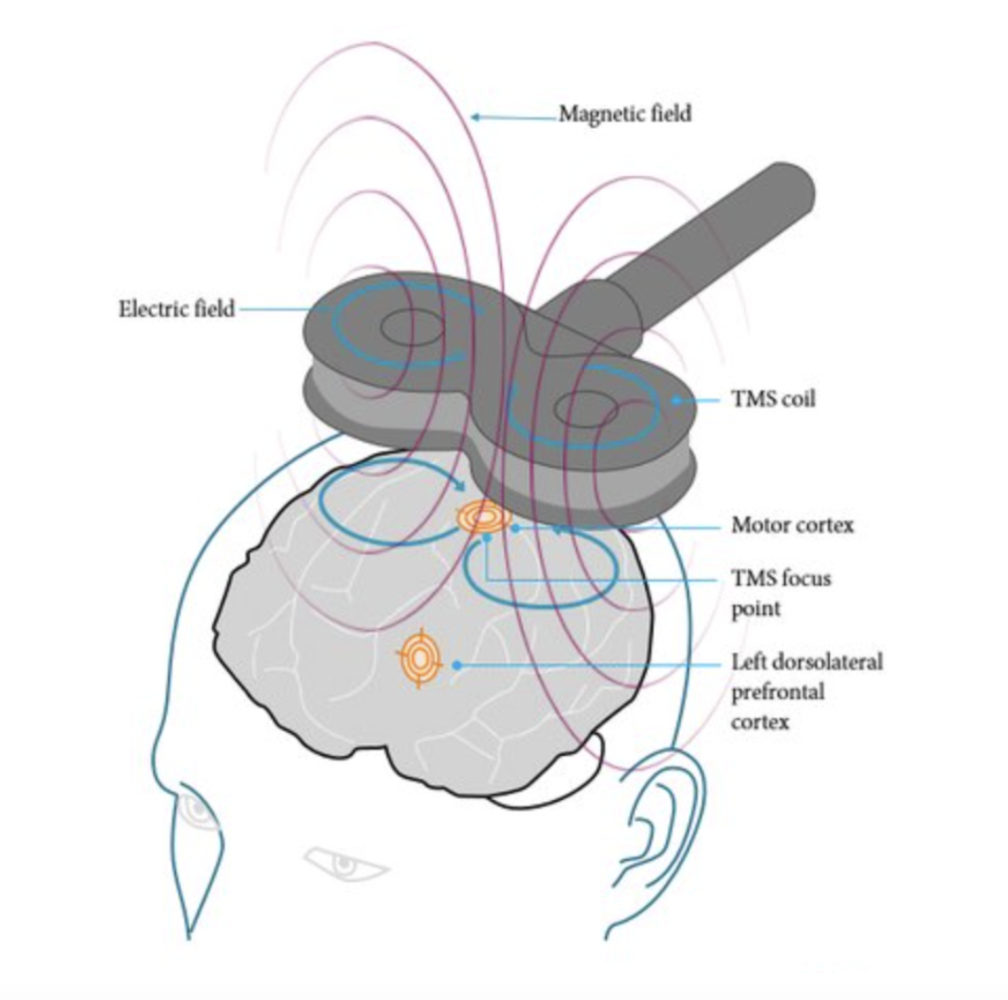TMS Therapy for Seniors: A Non-Medication Depression Treatment for Older Adults in Boston
Depression in Older Adults: More Common Than You Think
Depression doesn’t just affect the young. In fact, older adults—especially those over 60—face unique risk factors for developing depression, including chronic health conditions, social isolation, grief, and cognitive changes. One review found that 28% of older adults worldwide struggle with depression (Hu 2022). In the Greater Boston area, thousands of seniors in neighborhoods like Brookline, Cambridge, Newton, Somerville, and Back Bay quietly struggle with low mood, anxiety, and a loss of interest in life.
Unfortunately, depression in seniors often goes undiagnosed or is misattributed to “normal aging.” Worse, many older adults are unable to tolerate antidepressant medications due to side effects or drug interactions with other prescriptions.
The good news? There’s an effective, non-medication alternative available right here in Brookline: Transcranial Magnetic Stimulation (TMS) therapy at Dignity Brain Health.
What Is TMS Therapy?
TMS (Transcranial Magnetic Stimulation) is an FDA-approved, non-invasive treatment for major depressive disorder. It uses precisely targeted magnetic pulses to stimulate areas of the brain that are underactive in people with depression—particularly the left dorsolateral prefrontal cortex.
Unlike medications that circulate through your entire body, TMS works directly on the brain without affecting other systems. That means:
🔹 No sedation
🔹 No memory issues
🔹 No systemic side effects
🔹 No interference with current medications
TMS is well-suited for older adults who want to avoid more medications, or who have not found success with antidepressants or psychotherapy alone.
Why Seniors Are Turning to TMS in Boston
Older adults face unique challenges when it comes to mental health care:
Concerns about polypharmacy and drug interactions
Cognitive decline or side effects from medications
Limited mobility or energy for intensive therapy
Grief, chronic illness, or caregiving stress
TMS provides a safe, targeted, and evidence-based option that doesn’t rely on pharmaceuticals. Seniors across Boston—including those from Newton, Cambridge, and Somerville—are discovering how TMS can help them regain their energy, focus, and quality of life.
Is TMS Safe for Older Adults?
Absolutely. Transcranial Magnetic Stimulation (TMS) is not only safe for older adults—it’s often ideal for seniors who are sensitive to the side effects of medications or have other health conditions that limit treatment options.
As we age, our bodies process medications differently, and many seniors are already taking multiple prescriptions for chronic conditions such as high blood pressure, arthritis, or diabetes. Adding antidepressants into the mix can increase the risk of drug interactions, falls, cognitive impairment, and sedation—which are particularly concerning for older adults who value their independence.
Fortunately, TMS offers a safer alternative. A growing body of research supports the use of TMS in geriatric populations. For instance, a 2023 study published in Medicine demonstrated that repetitive TMS (rTMS) led to significant reductions in depressive symptoms among patients aged 60 and older, with minimal side effects and high tolerability across the board (Wang et al., 2023). Importantly, the benefits were seen even in patients with coexisting medical issues or mild cognitive decline—conditions that often limit treatment options.
What Side Effects Should Seniors Expect?
The most commonly reported side effects of TMS are mild and temporary, especially when compared to traditional antidepressants. They include:
Mild scalp discomfort at the treatment site, typically during the first few sessions
Headaches, which are usually short-lived and manageable with over-the-counter pain relievers
Fatigue or drowsiness after sessions, often diminishing as the body adjusts to treatment
These symptoms are generally short-term and resolve on their own within the first week or two of treatment. Most patients find that these effects are far less disruptive than those associated with medications, and they typically don’t interfere with daily activities like driving, reading, or socializing.
Additionally, TMS does not affect memory or cognition, making it especially appealing for older adults who may already be experiencing age-related cognitive changes.
Benefits of TMS for Seniors
For seniors facing depression, especially treatment-resistant depression, the benefits of TMS go far beyond mood improvement. Unlike medications that can take weeks to adjust and come with a host of side effects, TMS offers targeted relief without compromising physical or mental function.
Here are the top benefits that make TMS a smart choice for older adults:
✅ No Drug Interactions
Because TMS is a non-systemic treatment, it doesn’t interfere with any of your current medications. Whether you’re managing heart disease, diabetes, or neurological conditions, TMS can be safely added to your care plan without the need to stop or alter your prescriptions.
✅ No Memory or Cognitive Impairment
Unlike some medications that can cause brain fog, confusion, or memory issues—particularly in older adults—TMS does not impact cognitive function. In fact, many seniors report improved focus, mental clarity, and executive function as their depressive symptoms lift.
✅ Improved Sleep and Energy
Depression often robs seniors of restful sleep and daytime energy. As TMS stimulates key areas of the brain involved in mood and alertness, many patients report sleeping more soundly, waking more refreshed, and having renewed interest in daily activities like gardening, walking, reading, or socializing.
✅ Better Quality of Life and Mood Stability
Seniors who undergo TMS often describe a return to their true selves—feeling more like they did in earlier, happier stages of life. Improved mood also supports greater social engagement, physical activity, and overall well-being, which are all crucial components of healthy aging.
✅ Safe for Use Alongside Other Medical Treatments
Many seniors receive care from multiple providers—including cardiologists, endocrinologists, neurologists, and primary care physicians. TMS is non-invasive and non-surgical, so it poses no risk to pacemakers, surgical implants, or ongoing treatments. Our clinical team at Dignity Brain Health will also coordinate with your other providers to ensure integrated, seamless care.
🌍 Local Mental Health Resources for Seniors in Boston
If you're a senior—or caring for one—and looking for support beyond TMS, Boston offers a wealth of mental health resources:
These organizations offer everything from grief counseling to transportation, case management, and wellness programs. Dignity Brain Health is committed to helping patients find the best mental health care in the greater Boston area.
Frequently Asked Questions About TMS for Older Adults
Will I feel anything during treatment?
You may feel a tapping sensation on your scalp during treatment, but it’s generally well tolerated. Most patients are able to read, relax, or listen to music during their session.
Can I keep taking my current medications?
Yes. TMS does not interact with medications and can be used alongside your existing regimen. We’ll coordinate with your providers to ensure continuity of care.
How soon will I see results?
Some seniors report feeling better within 2–3 weeks, while others see more gradual improvements over the full course of treatment. Benefits can last for months or years with follow-up care.
🌟 How to Get Started With TMS in Brookline, MA
At Dignity Brain Health, we’re committed to helping seniors regain their emotional well-being. Whether you live in Brookline, Back Bay, Newton, Cambridge, or beyond, our clinic offers safe, effective, and life-enhancing depression treatment close to home.
Here’s how to take the first step:
Call our team at (617) 855-7288
Visit our clinic at 1101 Beacon St 8 West, Brookline, MA
We’ll walk you through every step, from eligibility to insurance coverage to treatment logistics. Our team is here to make this process easy and respectful—because mental health care should be accessible at every age.
Dignity Brain Health - TMS Therapy Clinic
We Want to Hear From You
Have questions about TMS therapy for older adults? Want to share your experience or ask about a loved one? Leave a comment below or reach out to our team—we’re here to help.
References
Cappon, D., den Boer, T., Jordan, C., Yu, W., Metzger, E., & Pascual-Leone, A. (2022). Transcranial magnetic stimulation (TMS) for geriatric depression. Ageing research reviews, 74, 101531. https://doi.org/10.1016/j.arr.2021.101531
Hu, T., Zhao, X., Wu, M., Li, Z., Luo, L., Yang, C., & Yang, F. (2022). Prevalence of depression in older adults: A systematic review and meta-analysis. Psychiatry research, 311, 114511. https://doi.org/10.1016/j.psychres.2022.114511
Wang, X., Fan, X., Zhang, L., Liu, X., & Ji, Z. (2023). Repetitive transcranial magnetic stimulation in the treatment of middle-aged and elderly major depressive disorder: A randomized controlled trial. Medicine, 102(35), e34841. https://doi.org/10.1097/MD.0000000000034841
—
CONTACT INFO:
DIGNITY BRAIN HEALTH
1101 BEACON STREET, SUITE 8W
BROOKLINE, MA, 02446
UNITED STATES
Phone: (617) 855-7288



